The recent admission by Finance Minister II Johari Abdul Ghani that the Malaysian government would not be able to achieve a zero budget deficit by 2020 should not come as a surprise to those who have been studying the Malaysian budget.
This is despite the many promises announced by Prime Minister and Finance Minister Najib Abdul Razak that Malaysia would reach this zero budget deficit by 2020.
Debt service charge increased from RM14.2 billion in 2009 to RM30.8 billion in 2018. The share of the budget to pay for debt service charges has increased from 9.1 percent in 2009 to 13.2 percent in 2018 (estimated).
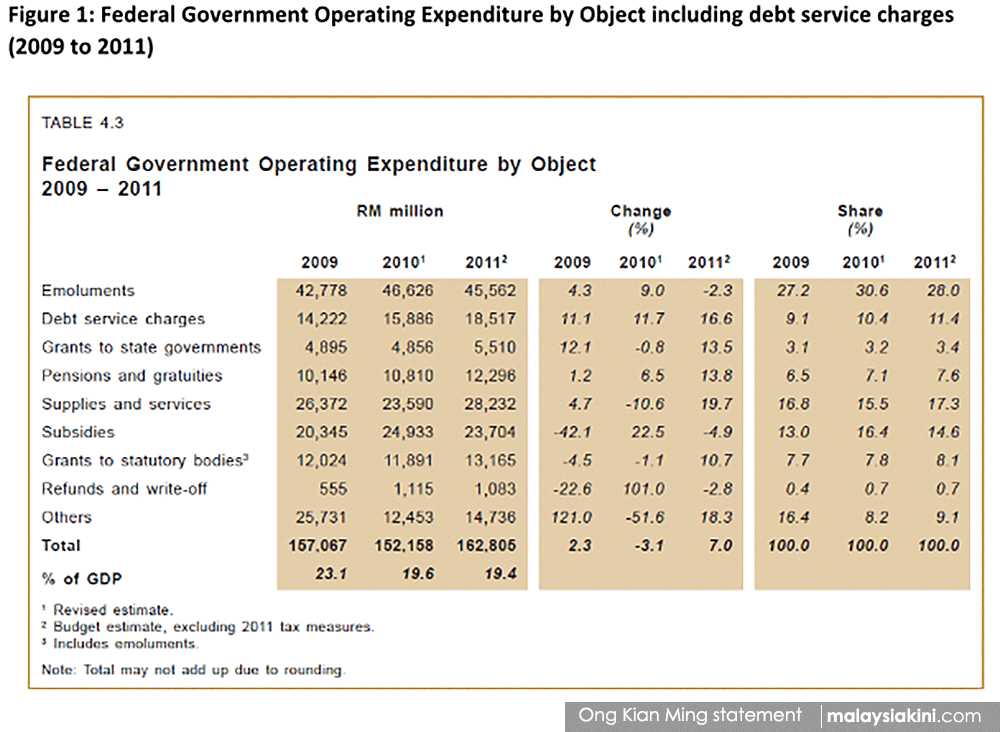
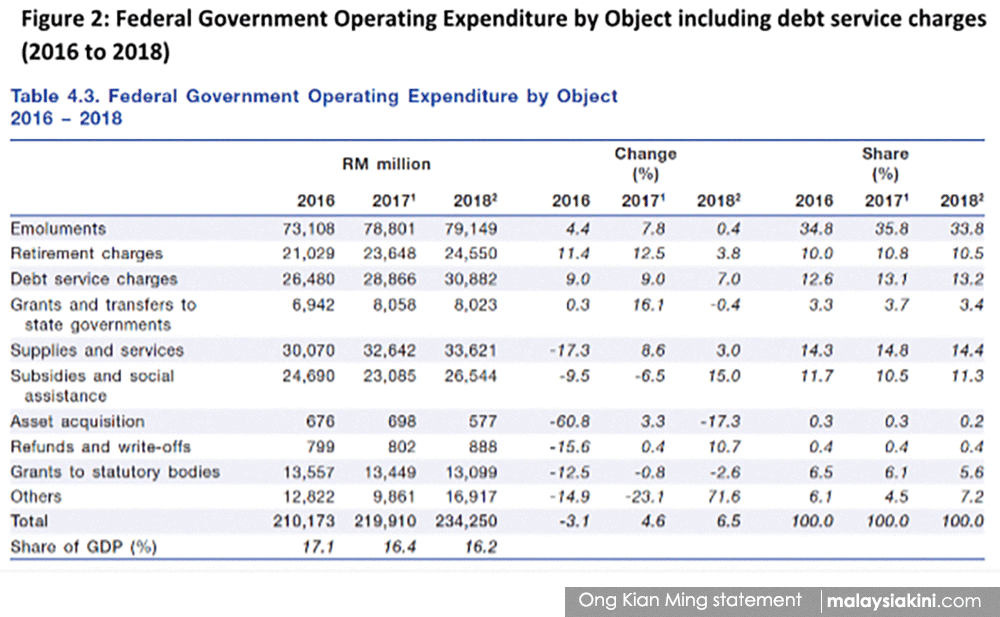
This increase in the debt service charges as a percentage of the budget should not be surprising, given that the growth in the federal debt is much higher than the increase in the federal revenue.
From 2009 (Najib became finance minister in September 2008) to 2017, the federal debt grew by 89.7 percent, or an annual growth rate of 11.2 percent compared to a 37.5 percent growth or an annual growth rate of 4.7 percent for the federal revenue during this period.

Note: 2017 Federal Debt and Revenue are estimates
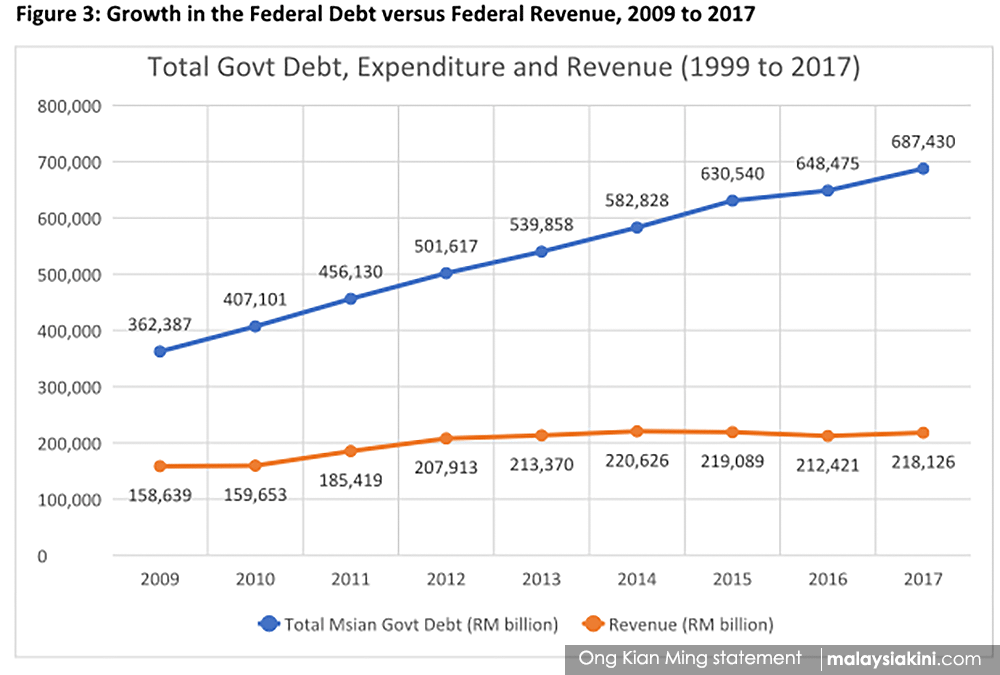
What should be more worrying is the fact that payments for debt service charges incurred by 100 percent owned Ministry of Finance (MoF) Special Purposes Vehicles (SPV) are also being paid by the government, but are being ‘hidden’ in other parts of the budget.
For example, payments for strategic sectors have increased from RM1.286 billion in 2017 to RM3.748 billion in 2018, according to the 2018 Budget estimates. Included in this payment is an RM1.1 billion payment to Dana Infra/Govco, which is the SPV in charge of issuing debt to finance the MRT lines and also the Pan Borneo Highway.
This was verified in a written parliamentary reply to me by the Minister of Finance II, dated Nov 29, 2017 (see Appendix 1, below).
In addition, other repayments (Lain-Lain Bayaran Balik) has also increased from RM1.528 billion in 2017 to RM4.236 billion in 2018. The biggest portion of this payment is for Private Finance Initiatives (PFIs), totalling RM3.971 billion (see Appendix 2, below).
PFIs are actually expenditure for development projects that are funded by 100 percent-owned MOF SPVs such as Pembinaan PFI Sdn Bhd, which has accumulated debt of approximately RM26 billion and Pembinaan BLT Sdn Bhd, which issued RM10 billion worth of bonds that were to be financed by yearly ‘rental’ payments by the government of Malaysia to fund the building of police quarters.
If we add up these off-budget sheet debt service charges (approximately RM5 billion for 2018), the total debt service charge would be RM35 or approximately 15 percent of the total budget which is just at the threshold under the administrative fiscal rules. (see Figure 4 below)
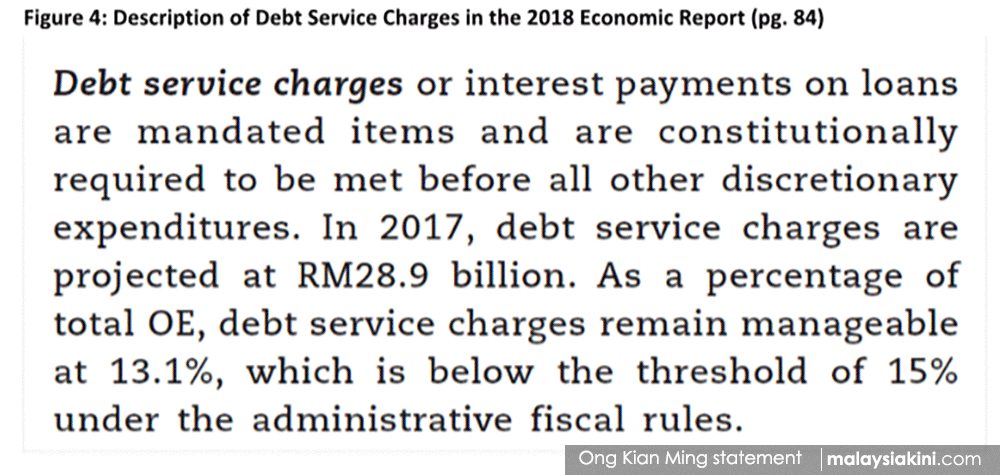
As the amount of debt issued by 100 percent MOF-owned SPVs continue to increase with projects such as the MRT Line 2 and Line 3, the LRT Line 3 and the Pan Borneo Highway, we can expect the total debt service charges (hidden and non-hidden) to continue to grow faster over the next decade.
This can be partly seen in the 21 percent of the debts guaranteed by the federal government from RM187.32 billion at the end of 2016 to RM226.88 billion at the end of September 2017.
I am not against development expenditure which brings long-term benefits to the rakyat. But by ‘hiding’ the debt servicing obligations of such expenditure behind these SPVs, we are allowing wastage and corruption in other parts of the operating and development expenditure (under the Prime Minister’s Department, for example) to persist.
What is worst for the rakyat is when funding to public higher education institutions and public hospitals are cut in order to pay for these ‘hidden’ debt servicing charges.
If this trend continues, I don’t believe that the government will be able to achieve a zero budget deficit even by 2022 or 2023. In fact, it is much more likely that we will have a budget crisis on our hands as our budget position worsens.
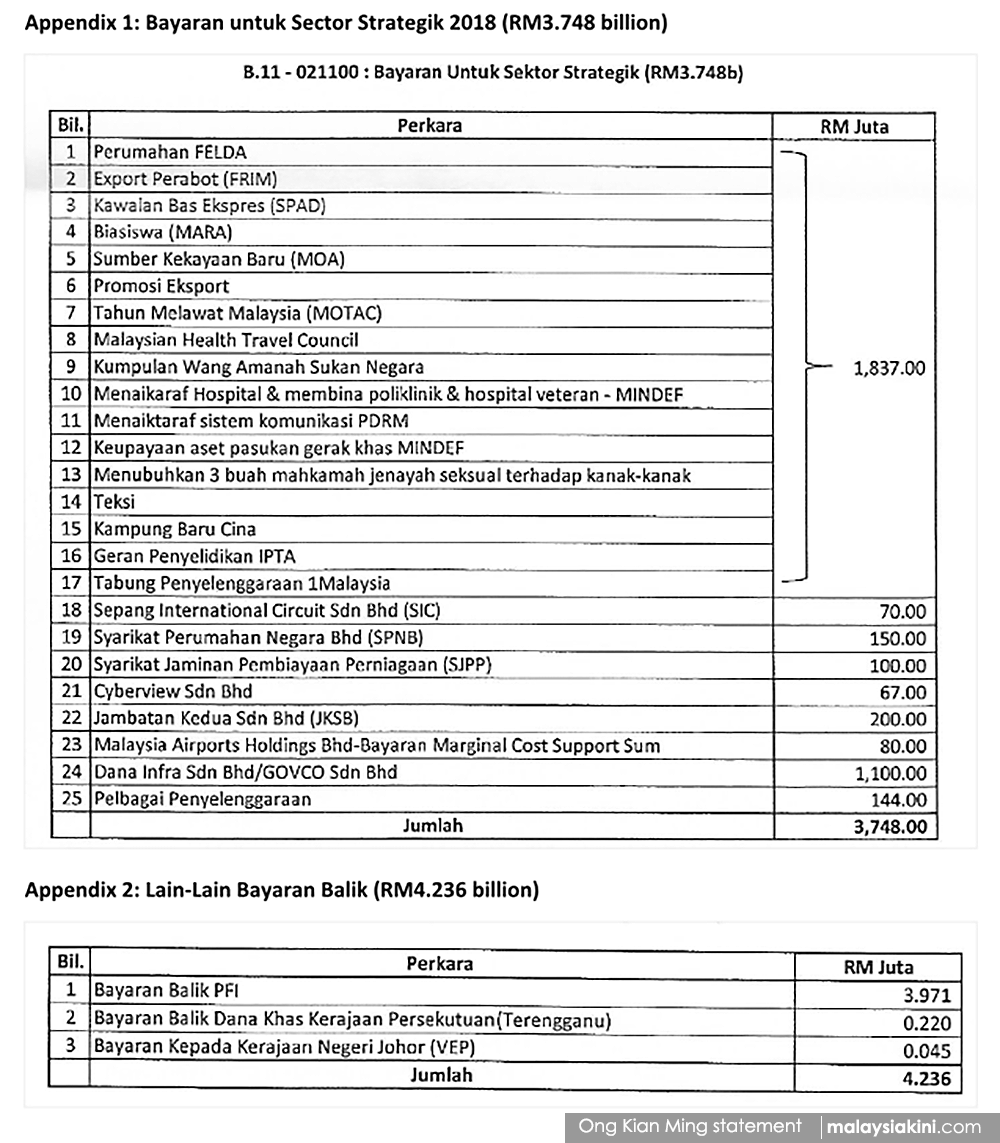
ONG KIAN MING is the MP for Serdang and assistant political education director of the DAP.

